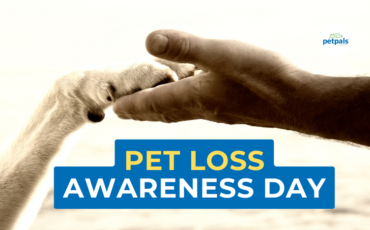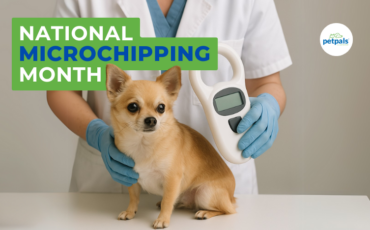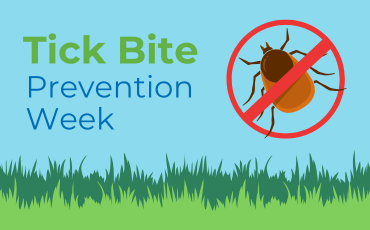Compulsory Microchipping from 6 April 2016 – A Guide
23rd February 2016

Compulsory Microchipping from 6 April 2016 – Dog owners/dog breeders.. are you aware of the new legislation?
Jean Wilson is the owner of Petpals Richmond and North Allerton. She has owned and cared for dogs all her life and is passionate about encouraging responsible breeding practices. This article takes factual information from the Kennel Club website.
Jean says, ‘I am writing this Blog in an attempt to spread the word about microchipping as I don’t think it has been advertised enough. Having carried out a small survey myself, no dog owner I discussed the issue with knew about the new rules, so together hopefully, we can spread the word. ‘Having recently purchased a German Shepherd myself I have experienced the wheels in motion. In my opinion this new law is a long time coming and it is quite right that the breeder should be traceable, through the make and number of the microchip inserted into the dog they have bred. As a trained ‘implanter’ myself, ‘Pet ID’ keep a record of all the chip numbers I have purchased.
‘The good news is that now, when a dog is lost or handed into a rehoming kennels, they will be not only be traceable back to their owners but also back to the breeder. This scheme should go some way to stopping backyard breeding; although they will always be a problem at least now the issue is beginning to be addressed.
Legislation from 6 April 2016
On 6th February 2013 the Westminster government announced a package of measures to tackle welfare and irresponsible dog ownership following a lengthy consultation process dating as far back as the previous government. As part of the measures the government is introducing secondary legislation under the Animal Welfare Act 2006 from 6 April 2016, requiring the microchipping of all dogs in England.
From this date ALL DOG OWNERS will need to have their dog microchipped and registered on one of the authorised commercial databases available; and they will have to register the details of any new owner before they sell or give the dog away.
Owners will be required to keep their contact details up to date on the microchip databases.
More information read this Government document on the new legislation.
Puppies ‘A breeder will be considered the first keeper of their litter of puppies and it will be their legal responsibility to get their puppies’ microchipped and recorded on a database compliant with the new regulations, such as Petlog. The breeder may not record the new owner as the first keeper of a puppy instead of themselves and it will be an offence if they are not listed as the first keeper of their puppies on a microchipping database compliant with the regulations, such as Petlog.The maximum age a puppy can be microchipped under normal circumstances is eight weeks old. There is no minimum age specified in the regulations. However it is advised that microchipping does not take place before the puppy is 6 weeks old, and it is a requirement that the puppy is microchipped and recorded on a database that is compliant with the new regulations, such as Petlog, by the time it is 8 weeks old. Therefore between 6 weeks and 8 weeks is the optimum time to get the puppy microchipped, with 8 weeks being the legal maximum (unless an exemption applies).
There are two exemptions to the microchipping regulations:
The first exemption is where a veterinarian has certified the dog as a working dog and docked its tail in accordance with the Animal Welfare Act 2006. In such cases the time limit for the dog to be microchipped and details recorded with a database is extended to 12 weeks. The dog can be passed on to a new keeper once it has been microchipped.
The second exemption is where a veterinarian certifies that a dog should not be microchipped because it could adversely affect its health. In such cases a vet would have to certify that this was the case and state when the exemption expired. The dog would then need to be microchipped on the expiry of that time limited certificate unless a veterinarian issued a further exemption certificate because of ongoing concerns with the dog’s health. In this case the decision to exempt a dog from being microchipped would be made by the veterinary surgeon. In such a case a breeder may pass the puppy on with a copy of the veterinary exemption certificate and any time limit for microchipping.
For more information about this, read this Kennel Club Microchipping Fact Sheet.









